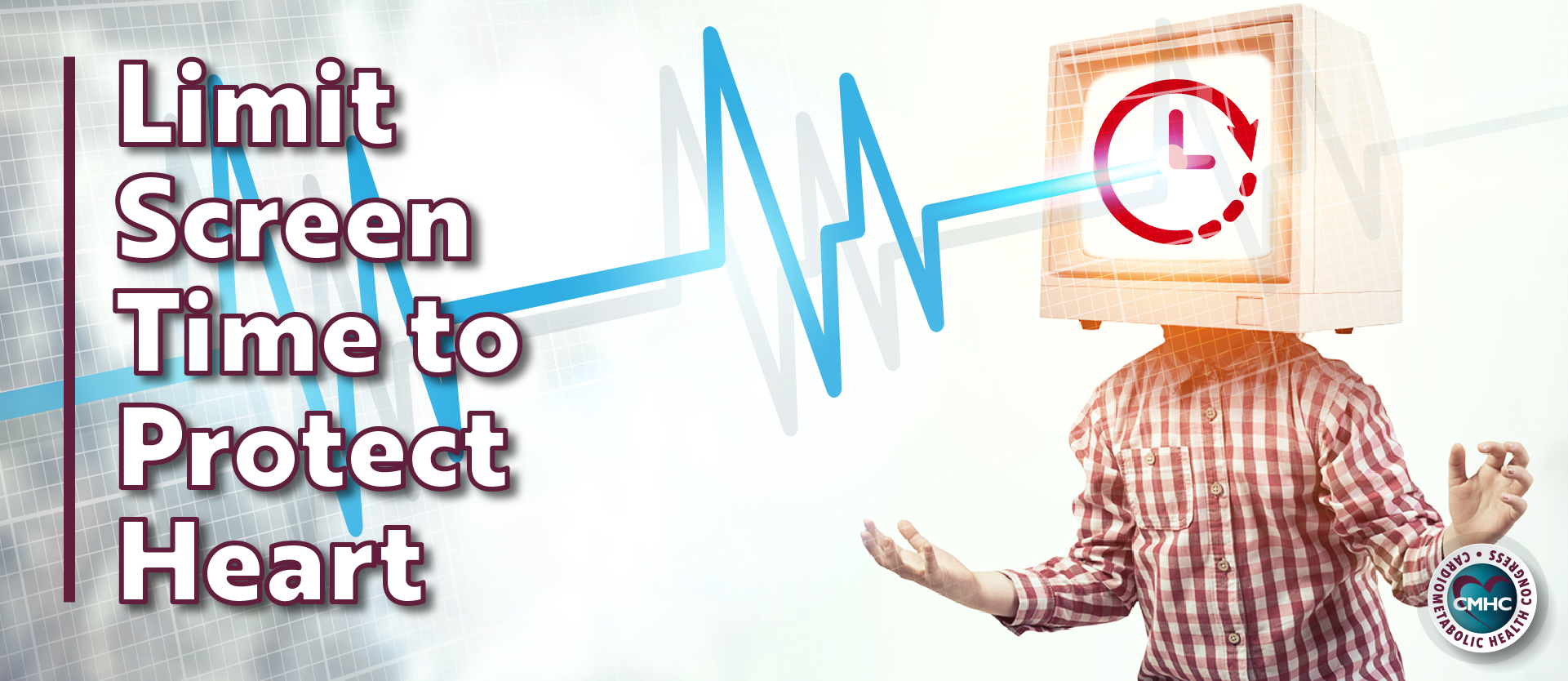Recent advice from the American Heart Association indicates that children should have limited screen time, as it may contribute to future cardiovascular disease. The AHA has emphasized existing recommendations, which suggest limiting screen time for children & teens to no more than 1-2 hours each day. Pediatric cardiologist Dr. Stephen Daniels, a spokesman for the American Heart Association, states: “Screen time is associated with being overweight and obese which is associated with high cholesterol and high blood pressure…Once those risk factors, such as obesity, are in play in childhood, they tend to continue into adulthood.”
The recommendations stem from a review of two decades of science, conducted by an AHA expert panel, regarding the correlation between CVD, stroke, and self-reported screen time by children and teens. The surveyed findings found that the use of mobile screens is up, which has resulted in an overall net increase of screen time. Kids and teens today, between the ages of 8 and 18, are estimated to spend more than 7 hours each day on ‘smartphones, tablets, video games, and other screen-based recreational devices, including television.’
Sedentary behavior is inevitably linked to higher risks for obesity; obesity is intricately linked to heart disease. Dr. David Hill, chairman of the Council on Communication and Media for the American Academy of Pediatrics, confirms, “There are strong data that relate childhood TV time to obesity in children.” The scientific statement published by the AHA further states that the upward increasing trends of screen time are particularly concerning given the accessibility and portability of screen-based devices, coupled with the access to unlimited programming and online content–which could lead to “new patterns of consumption that are exposing youth to multiple pathways harmful to cardiometabolic health.”
Tracie Barnett, a researcher at the INRS-Institut Armand Frappier and Sainte-Justine University Hospital Research Center in Montreal, said in a statement that “There are real concerns that screens influence eating behaviors, possibly because children ‘tune out’ and don’t notice when they are full when eating in front of a screen.” Barnett added that screens can disrupt sleep quality, further increasing the risk of obesity.
Overall, the American Heart Association scientific statement provides an updated perspective on sedentary behaviors specific to modern youth, and their overall effects and impacts on obesity and cardiometabolic health. While the panel agreed that there is little research regarding the longterm repercussions of screen use on children’s health, parents must improve childhood physical activity. Hill noted, “Heart health starts during childhood, so I think it’s very appropriate that the American Heart Association looks at every issue that can contribute to heart disease.”
Ideas cited in an article published by CNN include encouraging family physical activity, scheduling movement/exercise each day, eliminating any TV and/or mobile screen devices from bedrooms, and planning TV viewing in advance. The AHA statement suggests that parents and guardians sholud be supported to not only ‘devise and enforce appropriate screen time regulations,’ but also to effectively model healthy screen-based behaviors.
Experts conclude by clarifying that not all technology is inherently harmful; the American Academy of Pediatrics has created an interactive tool that has the capability to create a personalized media use plan for entire families. “There are ways to leverage technology to improve health,” said Hill. “My youngest got his first fitness tracker at 11, and comes to me every day to tell me how many steps he’s taken.”
SOURCES
https://www.cnn.com/2018/08/07/health/screen-time-children-heart-health/index.html
https://www.ahajournals.org/doi/pdf/10.1161/CIR.0000000000000591


















